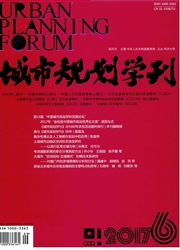

 中文摘要:
中文摘要:
基于家的地理学视角,运用空间句法的基本理论与方法,把传统村落及家空间的重构现象放置在快速城市化进程中进行思考,既重视文化的空间分析又强调空间的文化研究。在微观空间中,揭示了快速城市化进程中家空间物质形态变迁的文化观念表征和空间形态重构过程中的社会文化逻辑。主要结论如下:①快速城市化进程中,个体家庭的响应遵循着不同的空间生产逻辑。家屋空间产生了家庭现代化、从家到户、家与房子的分离3种不同的重构模式。②在家屋物质空间重构过程中,家中人与自然的关系、祭祀空间、内外关系、家庭关系、代际关系、性别关系等均发生着重构。③区位和大量外来人口是珠村家屋空间重构的外在动力;村民家庭的现代化诉求和家空间的经济需求是家屋空间重构的内在因素。城市化带来的新的社会经济关系是珠村家空间重构的内在逻辑。
 英文摘要:
英文摘要:
Traditional village as the material carrier of human culture heritage, facing space reconstruction and transformation of society in the process of rapid urbanization. Village traditional culture facing the realistic problem that lost its space carrier and space. As the basic unit of the village, home is the micro scale for geogra- phy to research the man-land relationship. Based on the geography of home, this article, which uses the basic theory and method of space syntax, locates the reconstruction of traditional villages and the home space in the context of repaid urbanization. It not only focuses on the spatial analysis of culture but also emphasizes the cul- tural studies of space. Following the insight into the micro space, this article reveals the cultural representation of material changes of the home space and the socio-cultural logic that hidden in the reconstruction process of space form. The findings of this article include: 1) In the process of rapid urbanization, the responses of indi- vidual families follow different logics of spatial production. Three different reconstruction patterns could be discovered in the process of the reconstruction of the home space, namely "family modernization", "from home to household", and "home is separated from the house". 2) Accompanied with the reconstruction of home space, the relationship between human and nature, the sacrifice space, the internal and external relations, the kinship between family members, the intergenerational relationship, and the gender relationship have been reconstructed as well. 3) The location and the large number of immigrants are the main external driving forces while the modernization of the villagers' families and the economic needs of the home space are the internal driving forces. Both of them contribute to the reconstruction of home space in Zhucun Village. The new so- cio-culture relations brought by urbanization are the intrinsic logic of the reconstruction of the home space in Zhucun village. This research p
 同期刊论文项目
同期刊论文项目
 同项目期刊论文
同项目期刊论文
 期刊信息
期刊信息
